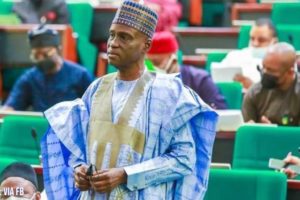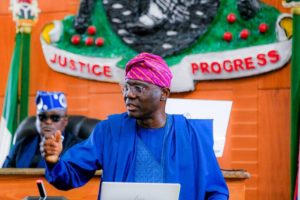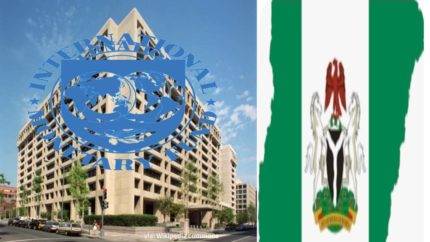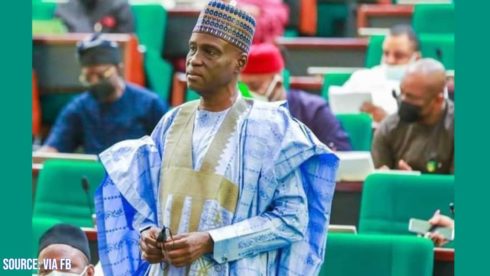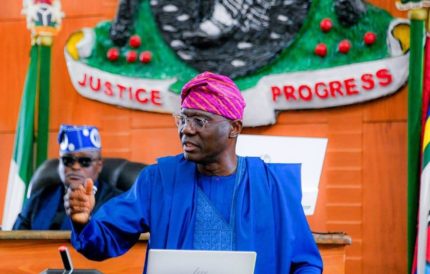International Monetary Fund Warning: Nigeria’s Deepening Economic Crisis
The International Monetary Fund (IMF) has sounded the alarm over Nigeria’s worsening economic situation. In a recent report titled ‘Review of Nigeria’s Post Financing Assessment by the IMF Executive Board,’ the organization highlighted concerns about stagnant per-capita growth, widespread poverty, and severe food insecurity. These issues have compounded the persistent cost-of-living crisis in the country, pushing many citizens further into financial hardship.
The IMF report underscores the urgent need for action to address the root causes of Nigeria’s economic challenges. Without decisive measures to stimulate growth, reduce poverty, and improve food security, the country risks facing even greater social and economic instability in the coming years.
Revenue Collection Challenges and Public Investment Impediments
One of the key factors contributing to Nigeria’s economic woes, according to the IMF report, is the inadequate collection of revenue. This shortfall has hindered the government’s ability to provide essential services and allocate resources towards much-needed public investments. Without sufficient revenue streams, Nigeria struggles to fund critical infrastructure projects, education, healthcare, and other social programs, further exacerbating the economic crisis.
Addressing the issue of revenue collection will be crucial in unlocking Nigeria’s economic potential and fostering sustainable development. The government must explore innovative strategies to enhance tax compliance, curb corruption, and attract foreign investment to bolster its fiscal position and stimulate economic growth.
Rising Inflation and Contributing Factors
Inflation remains a pressing concern for Nigeria, with the observed rate reaching 27 percent in October, according to the International Monetary Fund report. Of particular note is the steep food inflation rate, which stood at 32 percent during the same period, reflecting the challenges faced by the agricultural sector. Several factors contribute to this inflationary pressure, including the removal of fuel subsidies, currency depreciation, and disruptions to agricultural production.
The IMF’s assessment underscores the need for targeted interventions to address the root causes of inflation and stabilize prices in essential sectors such as food and energy. Without decisive action to mitigate these factors, Nigeria’s inflationary woes are likely to persist, further eroding the purchasing power of its citizens and deepening the economic crisis.
External Challenges and Limited Fiscal Space
Nigeria’s economic woes are compounded by challenges on the external front, as highlighted in the International Monetary Fund report. Scarce external financing, coupled with global food price surges driven by conflict and geo-economic fragmentation, further strain the country’s already fragile economic situation. Additionally, low reserves and limited fiscal space constrain the government’s ability to maneuver and implement effective policy responses.
Navigating these external challenges will require concerted efforts from Nigerian policymakers, as well as cooperation with international partners and financial institutions. Building resilience to external shocks, diversifying the economy, and strengthening fiscal management will be essential in safeguarding Nigeria’s economic stability and fostering sustainable growth.
Focus on Macroeconomic Stability and Inclusive Growth
Despite the daunting challenges facing Nigeria, the International Monetary Fund report acknowledges the government’s commitment to restoring macroeconomic stability and fostering inclusive growth. The report commends the authorities’ efforts to create conditions conducive to sustained economic development, albeit in the face of formidable obstacles. By prioritizing macroeconomic stability and inclusive growth, Nigeria aims to address the root causes of poverty, inequality, and economic vulnerability.
The International Monetary Fund’s endorsement of Nigeria’s economic strategy underscores the importance of policy coherence, institutional capacity building, and international cooperation in overcoming the country’s economic challenges. Moving forward, sustained efforts to implement structural reforms, improve governance, and foster private sector-led growth will be essential in unlocking Nigeria’s vast potential and building a more prosperous future for all its citizens.
IMF Evaluation and Debt Repayment Assurance
Amid Nigeria’s economic struggles, the International Monetary Fund report highlights a positive development regarding the country’s evaluation of post-financing. On January 12, 2024, the Executive Board of the International Monetary Fund completed its assessment and approved the Staff Appraisal without delay. Moreover, the report provides assurance that Nigeria possesses sufficient capability to repay its debts to the International Monetary Fund, alleviating concerns about its financial obligations.
This assurance from the IMF underscores Nigeria’s commitment to fiscal responsibility and financial accountability, despite the formidable challenges it faces. By fulfilling its debt obligations and maintaining a constructive relationship with international financial institutions, Nigeria can bolster confidence in its economic stability and pave the way for sustainable growth and development in the years to come.
Table of Contents
Discover more from OGM News NG
Subscribe to get the latest posts sent to your email.

